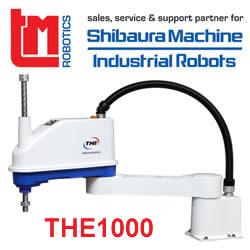Supply Chain Issues Create Opportunities for U.S. Encoder Manufacturer
Within every challenge is opportunity.
Carlsbad, CA - Extensive slowdowns all along the supply chain are keeping electronics manufacturers from buying the components they need, when they need them, suggesting broader problems across the economy. However, for SMAC, a little encoder manufacturing group in Derry, New Hampshire, the crisis has led to record sales numbers in 2021.
"No one else on the planet can create prototypes as quickly as we can," claimed one SMAC Application Engineer. This statement may be difficult to verify, but certainly only a very select few can deliver price competitive encoder prototypes to U.S.-based companies as quickly as SMAC can.
SMAC setup their own Encoder manufacturing group SMAC-EMC, to design, build and test their own line of optical encoders. Their engineering and manufacturing staff have over 25 years' experience designing and building optical encoders at SMAC and at other major optical encoder companies. This staff has designed large volume, optical encoder products for Markem, Brooks Automation, Varian Corp, HP, Universal Instruments, Delphi and other manufacturers from coast to coast.
Because SMAC developed and designed their own reflective and diffractive optical encoder in-house, it has given them the knowledge and understanding of all the attributes that go into choosing superior encoder optical components for their designs.
Featured Product

TM Robotics - Shibaura Machine THE SCARA range
The THE range from Shibaura Machine is an extensive line up of SCARA robots. Available in four arm lengths THE400 (400mm), THE600 (600mm) and the most recent THE800 (800mm) and THE1000 (1000mm), this range is suitable for assembly, handling, inspection and pick and place processes in varied industrial applications. The THE1000 boasts a 20kg payload capacity and an impressive 0.44 second cycle time, providing high speeds for processes with large components. In fact, the range has been recognised for as the price-to-performance leader compared to other SCARA models in its price range due to its impressive speed versus payload capacity.
